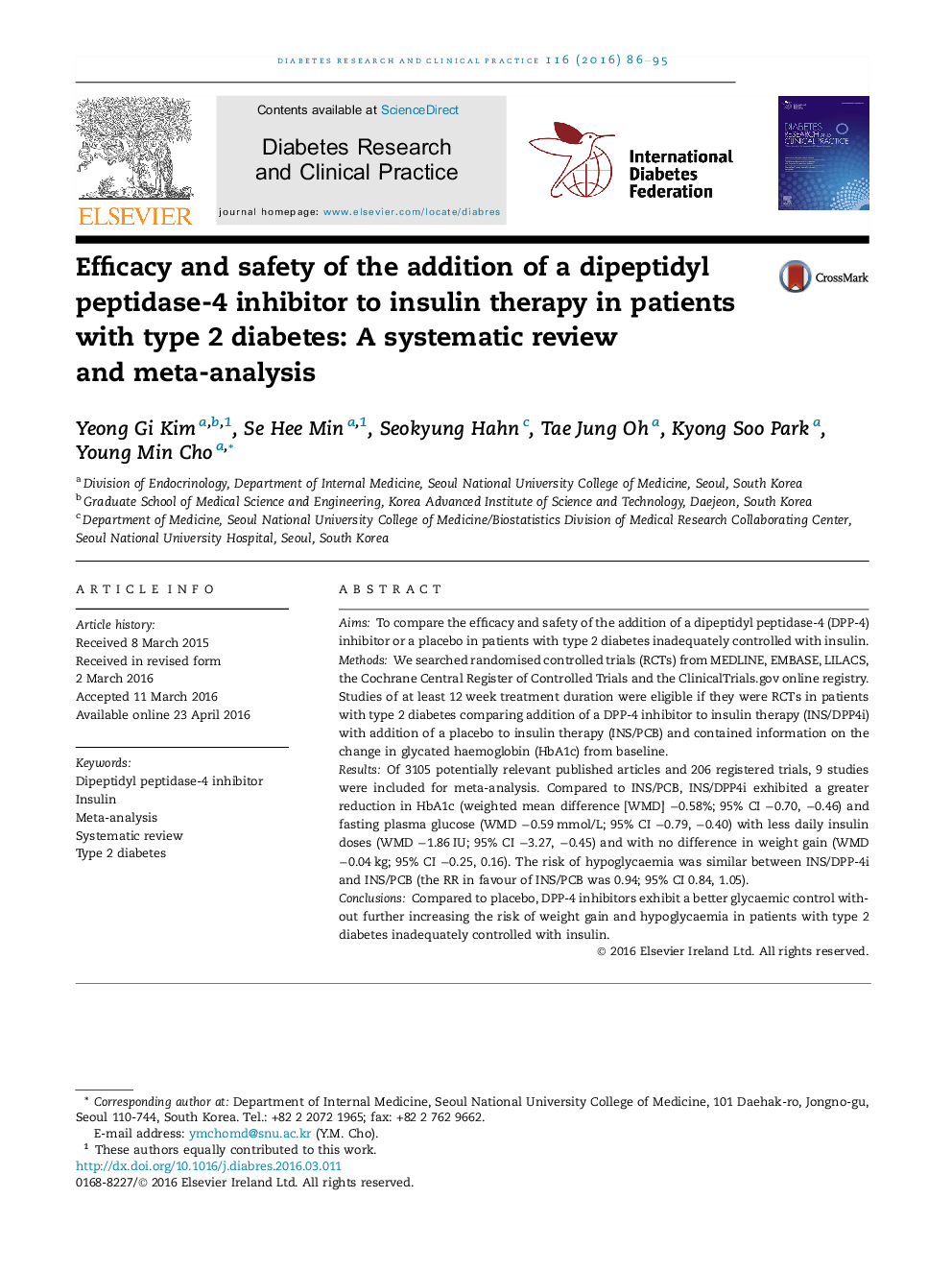| Article ID | Journal | Published Year | Pages | File Type |
|---|---|---|---|---|
| 5898962 | Diabetes Research and Clinical Practice | 2016 | 10 Pages |
â¢Effect of DPP-4 inhibitors combined with insulin therapy was evaluated by meta-analysis.â¢DPP-4 inhibitors decreased HbA1c and fasting plasma glucose levels.â¢DPP-4 inhibitors did not increase the risk of hypoglycaemia and weight gain.â¢DPP-4 inhibitors exhibited small but significant insulin sparing effect.
AimsTo compare the efficacy and safety of the addition of a dipeptidyl peptidase-4 (DPP-4) inhibitor or a placebo in patients with type 2 diabetes inadequately controlled with insulin.MethodsWe searched randomised controlled trials (RCTs) from MEDLINE, EMBASE, LILACS, the Cochrane Central Register of Controlled Trials and the ClinicalTrials.gov online registry. Studies of at least 12Â week treatment duration were eligible if they were RCTs in patients with type 2 diabetes comparing addition of a DPP-4 inhibitor to insulin therapy (INS/DPP4i) with addition of a placebo to insulin therapy (INS/PCB) and contained information on the change in glycated haemoglobin (HbA1c) from baseline.ResultsOf 3105 potentially relevant published articles and 206 registered trials, 9 studies were included for meta-analysis. Compared to INS/PCB, INS/DPP4i exhibited a greater reduction in HbA1c (weighted mean difference [WMD] â0.58%; 95% CI â0.70, â0.46) and fasting plasma glucose (WMD â0.59Â mmol/L; 95% CI â0.79, â0.40) with less daily insulin doses (WMD â1.86Â IU; 95% CI â3.27, â0.45) and with no difference in weight gain (WMD â0.04Â kg; 95% CI â0.25, 0.16). The risk of hypoglycaemia was similar between INS/DPP-4i and INS/PCB (the RR in favour of INS/PCB was 0.94; 95% CI 0.84, 1.05).ConclusionsCompared to placebo, DPP-4 inhibitors exhibit a better glycaemic control without further increasing the risk of weight gain and hypoglycaemia in patients with type 2 diabetes inadequately controlled with insulin.
